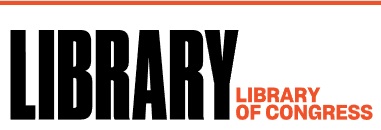Anstee, S., Shepherd, J., Graham, C. A., Stone, N., Brown, K., Newby, K., & Ingham, R. (2019). Evidence for behavioural interventions addressing condom use fit and feel issues to improve condom use: a systematic review. Sexual Health, 16(6), 539-547. https://doi.org/10.1071/SH19001
Arya, M., Marek, H. G., Marren, R. E., Hemmige, V., Street, R. L., & Giordano, T. P. (2019). Development and evaluation of a physician-targeted video to promote HIV screening. Health Promotion Practice, 20(6), 922-931. https://doi.org/10.1177/1524839918783742
Bauermeister, J. A., Tingler, R. C., Demers, M., Connochie, D., Gillard, G., Shaver, J., Chavanduka, T., & Harper, G. W. (2019). Acceptability and preliminary efficacy of an online HIV prevention intervention for single young men who have sex with men seeking partners online: The myDEx Project. Aids and Behavior, 23(11), 3064-3077. https://doi.org/10.1007/s10461-019-02426-7
Bond, K. T., & Ramos, S. R. (2019). Utilization of an animated electronic health video to increase knowledge of post- and pre-exposure prophylaxis for HIV among African American Women: Nationwide cross-sectional survey. JMIR Formative Research, 3(2), e9995. https://doi.org/10.2196/formative.9995
Bonett, S., Connochie, D., Golinkoff, J. M., Horvath, K. J., & Bauermeister, J. A. (2018). Paradata analysis of an ehealth HIV testing intervention for young men who have sex with men. Aids Education and Prevention, 30(5), 434-447. https://doi.org/10.1521/aeap.2018.30.5.434
Brennan, D. J., Souleymanov, R., Lachowsky, N., Betancourt, G., Pugh, D., & McEwen, O. (2018). Providing online-based sexual health outreach to gay, bisexual, and queer men in Ontario, Canada: Qualitative interviews with multisectoral frontline service providers and managers. Aids Patient Care and Stds, 32(7), 282-287. https://doi.org/10.1089/apc.2018.0027
Camlin, C. S., Koss, C. A., Getahun, M., Owino, L., Itiakorit, H., Akatukwasa, C., Maeri, I., Bakanoma, R., Onyango, A., Atwine, F., Ayieko, J., Kabami, J., Mwangwa, F., Atukunda, M., Owaraganise, A., Kwarisiima, D., Sang, N., Bukusi, E. A., Kamya, M. R., Petersen, M. L., Cohen, C. R., Charlebois, E. D., & Havlir, D. V. (2020). Understanding demand for PrEP and early experiences of PrEP use among young adults in rural Kenya and Uganda: A qualitative study. AIDS and Behavior, 24(7), 2149-2162. https://doi.org/10.1007/s10461-020-02780-x
Cordova, D., Mendoza, F., Muñoz-Velázquez, J., Street, K., Bauermeister, J. A., Fessler, K., Adelman, N., Youth Leadership Council, Neilands, T. B., & Boyer, C. B. (2019). A multilevel mHealth drug abuse and STI/HIV preventive intervention for clinic settings in the United States: A feasibility and acceptability study. PLoS ONE, 14(8), 1-24. https://doi.org/10.1371/journal.pone.0221508
Dietrich, J. J., Hornschuh, S., Khunwane, M., Makhale, L. M., Otwombe, K., Morgan, C., Huang, Y., Lemos, M., Lazarus, E., Kublin, J. G., Gray, G. E., Laher, F., & Andrasik, M. (2020). A mixed methods investigation of implementation barriers and facilitators to a daily mobile phone sexual risk assessment for young women in Soweto, South Africa. PLoS ONE, 15(4), Article e0231086. https://doi.org/10.1371/journal.pone.0231086
Ebrahimi, F., Sindarreh, S., & Nasirian, M. (2020). Attitudes and Practice of Health Care Workers about Human Immunodeficiency Virus in Isfahan, Iran. Iranian Journal of Nursing & Midwifery Research, 25(2), 111-116. https://doi.org/10.4103/ijnmr.IJNMR_67_19
Evans, W. D., Ulasevich, A., Hatheway, M., & Deperthes, B. (2020). Systematic Review of Peer-Reviewed Literature on Global Condom Promotion Programs. International Journal of Environmental Research and Public Health, 17(7), 2262. https://www.mdpi.com/1660-4601/17/7/2262
Fan, X., She, R., Liu, C., Zhong, H., Lau, J. T. F., Hao, C., Li, J., Hao, Y., Li, L., & Gu, J. (2020). Evaluation of smartphone APP-based case-management services among antiretroviral treatment-naí¯ve HIV-positive men who have sex with men: A randomized controlled trial protocol. BMC Public Health, 20(1), 1-13. https://doi.org/10.1186/s12889-020-8171-5
Fernández-Sánchez, H., Guzmán-Facundo, F. R., Herrera-Medina, D., & Sidani, S. (2020). Importancia del estudio piloto en un proyecto de intervención. Index De Enfermería, (Preedición), e12860. http://ciberindex.com/c/ie/e12860
Gannon, B., Davis, R., Kuhns, L. M., Rodriguez, R. G., Garofalo, R., & Schnall, R. (2020). A mobile sexual health app on empowerment, education, and prevention for young adult men (MyPEEPS mobile): Acceptability and usability evaluation. Journal of Medical Internet Research, 22(4), e17901. https://doi.org/10.2196/17901
Hightow-Weidman, L. B., LeGrand, S., Muessig, K. E., Simmons, R. A., Soni, K., Choi, S. K., Kirschke-Schwartz, H., & Egger, J. R. (2019). A randomized trial of an online risk reduction intervention for young black MSM. Aids and Behavior, 23(5), 1166-1177. https://doi.org/10.1007/s10461-018-2289-9
Hutton, B., Catalá-López, F., & Moher, D. (2016). La extensión de la declaración PRISMA para revisiones sistemáticas que incorporan metaanálisis en red: PRISMA-NMA. Medicina clínica, 147(6), 262-266. https://doi.org/10.1016/j.medcli.2016.02.025
Knight, R., Karamouzian, M., Salway, T., Gilbert, M., & Shoveller, J. (2017). Online interventions to address HIV and other sexually transmitted and blood-borne infections among young gay, bisexual and other men who have sex with men: A systematic review. Journal of the International AIDS Society, 20(3), e25017. https://doi.org/10.1002/jia2.25017
Kurth, A. E., Sidle, J. E., Chhun, N., Lizcano, J. A., Macharia, S. M., Garcia, M. M., Mwangi, A., Keter, A., & Siika, A. M. (2019). Computer-based counseling program (Care+ Kenya) to promote prevention and HIV health for people living with HIV/AIDS: A randomized controlled trial. Aids Education and Prevention, 31(5), 395-406. https://doi.org/10.1521/aeap.2019.31.5.395
Lopez, C., Gilmore, A. K., Moreland, A., Danielson, C. K., & Acierno, R. (2020). Meeting kids where they are at-a substance use and sexual risk prevention program via telemedicine for african american girls: Usability and acceptability study. Journal of Medical Internet Research, 22(8), e16725. https://doi.org/10.2196/16725
Madkins, K., Moskowitz, D. A., Moran, K., Dellucci, T. V., & Mustanski, B. (2019). Measuring acceptability and engagement of the keep it up! Internet-based HIV prevention randomized controlled trial for young men who have sex with men. Aids Education and Prevention, 31(4), 287-305. https://doi.org/10.1521/aeap.2019.31.4.287
Mustanski, B., Parsons, J. T., Sullivan, P. S., Madkins, K., Rosenberg, E., & Swann, G. (2018). Biomedical and behavioral outcomes of keep it up!: An eHealth HIV prevention program RCT. American Journal of Preventive Medicine, 55(2), 151-158. https://doi.org/10.1016/j.amepre.2018.04.026
Noar, S. M., Willoughby, J. F., Crosby, R., Webb, E. M., Van Stee, S. K., Feist-Price, S., & Davis, E. (2020). Acceptability of a computer-tailored safer sex intervention for heterosexually active African Americans attending an STI clinic. Journal of Primary Prevention, 41(3), 211-227. https://doi.org/10.1007/s10935-020-00585-1
Ogrinc, G., Davies, L., Goodman, D., Batalden, P., Davidoff, F., & Stevens, D. (2015). SQUIRE 2.0 (Standards for Quality Improvement Reporting Excellence): Revised publication guidelines from a detailed consensus process. The Journal of Continuing Education in Nursing, 46(11), 501-507. https://doi.org/10.3928/00220124-20151020-02
ONUSIDA (2021). Hoja informativa 2021. Estimaciones epidemiológicas preliminares de ONUSIDA para 2021. https://www.unaids.org/sites/default/files/media_asset/UNAIDS_FactSheet_es.pdf
Patel, V. V., Rawat, S., Dange, A., Lelutiu-Weinberger, C., & Golub, S. A. (2020). An internet-based, peer-delivered messaging intervention for HIV testing and condom use among men who have sex with men in India (CHALO!): Pilot randomized comparative trial. JMIR Public Health and Surveillance, 6(2), e16494. https://doi.org/10.2196/16494
Refugio, O. N., Kimble, M. M., Silva, C. L., Lykens, J. E., Bannister, C., & Klausner, J. D. (2019). Brief report: PrEPTECH: A telehealth-based initiation program for HIV pre-exposure prophylaxis in young men of color who have sex with men. A pilot study of feasibility. JAIDS Journal of Acquired Immune Deficiency Syndromes, 80(1). 40-45. https://doi.org/10.1097/QAI.0000000000001873
Sabben, G., Akelo, V., Mudhune, V., Ondeng'e, K., Ndivo, R., Stephenson, R., & Winskell, K. (2019). A smartphone game to prevent HIV among young Africans: Protocol for a randomized pilot study of a mobile intervention. JMIR Research Protocols, 8(3), e11209. https://doi.org/10.2196/11209
Shrestha, R., Altice, F. L., DiDomizio, E., Sibilio, B., Ranjit, Y. S., & Copenhaver, M. M. (2020). Feasibility and acceptability of an mHealth-based approach as an HIV prevention strategy among people who use drugs on pre-exposure prophylaxis. Patient Preference & Adherence, 14, 107-118. https://doi.org/10.2147/PPA.S236794
Sullivan, P. S., Driggers, R., Stekler, J. D., Siegler, A., Goldenberg, T., McDougal, S. J., Caucutt, J., Jones, J., & Stephenson, R. (2017). Usability and acceptability of a mobile comprehensive HIV prevention app for men who have sex with men: A pilot study. JMIR Mhealth Uhealth, 5(3), e26. https://doi.org/10.2196/mhealth.7199
Suryavanshi, N., Kadam, A., Gupte, N., Hegde, A., Kanade, S., Sivalenka, S., Kumar, V. S., Gupta, A., Bollinger, R. C., Shankar, A., McKenzie-White, J., & Mave, V. (2020). A mobile health facilitated behavioural intervention for community health workers improves exclusive breastfeeding and early infant HIV diagnosis in India: A cluster randomized trial. Journal of the International AIDS Society, 23(7), 1-9. https://doi.org/10.1002/jia2.25555
Suryavanshi, N., Kadam, A., Kanade, S., Gupte, N., Gupta, A., Bollinger, R., Mave, V., & Shankar, A. (2020). Acceptability and feasibility of a behavioral and mobile health intervention (COMBIND) shown to increase uptake of prevention of mother to child transmission (PMTCT) care in India. BMC Public Health, 20(1), 752. https://doi.org/10.1186/s12889-020-08706-5
Tanner, A. E., Mann-Jackson, L., Song, E. Y., Alonzo, J., Schafer, K. R., Ware, S., Horridge, D. N., Garcia, J. M., Bell, J., Hall, E. A., Baker, L. S., & Rhodes, S. D. (2020). Supporting health among young men who have sex with men and transgender women with HIV: Lessons learned from implementing the weCare intervention. Health Promotion Practice, 21(5), 755-763. https://doi.org/10.1177/1524839920936241
Zurita-Cruz, J., Márquez-González, H., Miranda-Novales, G., & Villasís-Keever, M. (2018). Estudios experimentales: diseños de investigación para la evaluación de intervenciones en la clínica. Revista alergia México, 65(2), 178-186. https://doi.org/10.29262/ram.v65i2.376




























